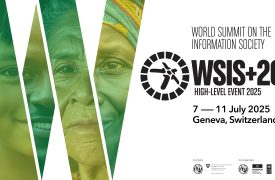
Digital Inclusion Benchmark
The Digital Inclusion Benchmark tracks how companies are helping to advance a more inclusive digital economy and society.
Aim
During WBA’s multi-stakeholder consultation phase, digital companies were identified by key stakeholders as among the most influential to achieve the SDGs. From mobile money applications that give the unbanked access to financial resources to bring themselves out of poverty, to internet and web applications that help people connect and cooperate globally, digital technologies have significant though currently untapped scope to accelerate the SDGs.
To unleash this potential, the barriers excluding billions of people from accessing and productively harnessing digital technology needs to be torn down. Digital technology companies must play a greater role for this to happen. WBA’s corporate benchmarking aims to highlight industries and companies that are currently leading the way in fostering digital inclusion to trigger a race to the top across the digital sector, as well as hold underachieving companies accountable.
Read more about the seven systems transformations
2023 Digital Inclusion Benchmark
See resultsMilestones
The benchmark is free and publicly available, published annually and shared widely with government, investor and civil society stakeholders worldwide, including WBA allies.
-
First benchmark publication
December 2020
-
Data collection, verification and analysis
June - November 2021
-
Second benchmark publication
December 2021
-
Data collection, verification and analysis
2022
-
Third benchmark publication
March 2023
-
Methodology review
October 2023 - November 2024
-
Methodology updated and published
December 2024
-
Fourth benchmark publication
January 2026

See our Methodology for the 2026 Digital Inclusion Benchmark
See documentFrequently asked questions
The Digital Inclusion Benchmark FAQ page provides more elaborated responses to questions you might have as a participating company. Please do visit the page for more information on the benchmark process, the benefits to a participating company, the timelines for publication, etc.
Expert Review Committee
The Digital Inclusion Benchmark is developed in close collaboration with an Expert Review Committee (ERC), whose members support the core team with their expertise and experience.
Get involved
As we build our work, we continue to engage with stakeholders across the globe through targeted communications with key organisations and representatives. We also encourage meaningful and constructive feedback.







